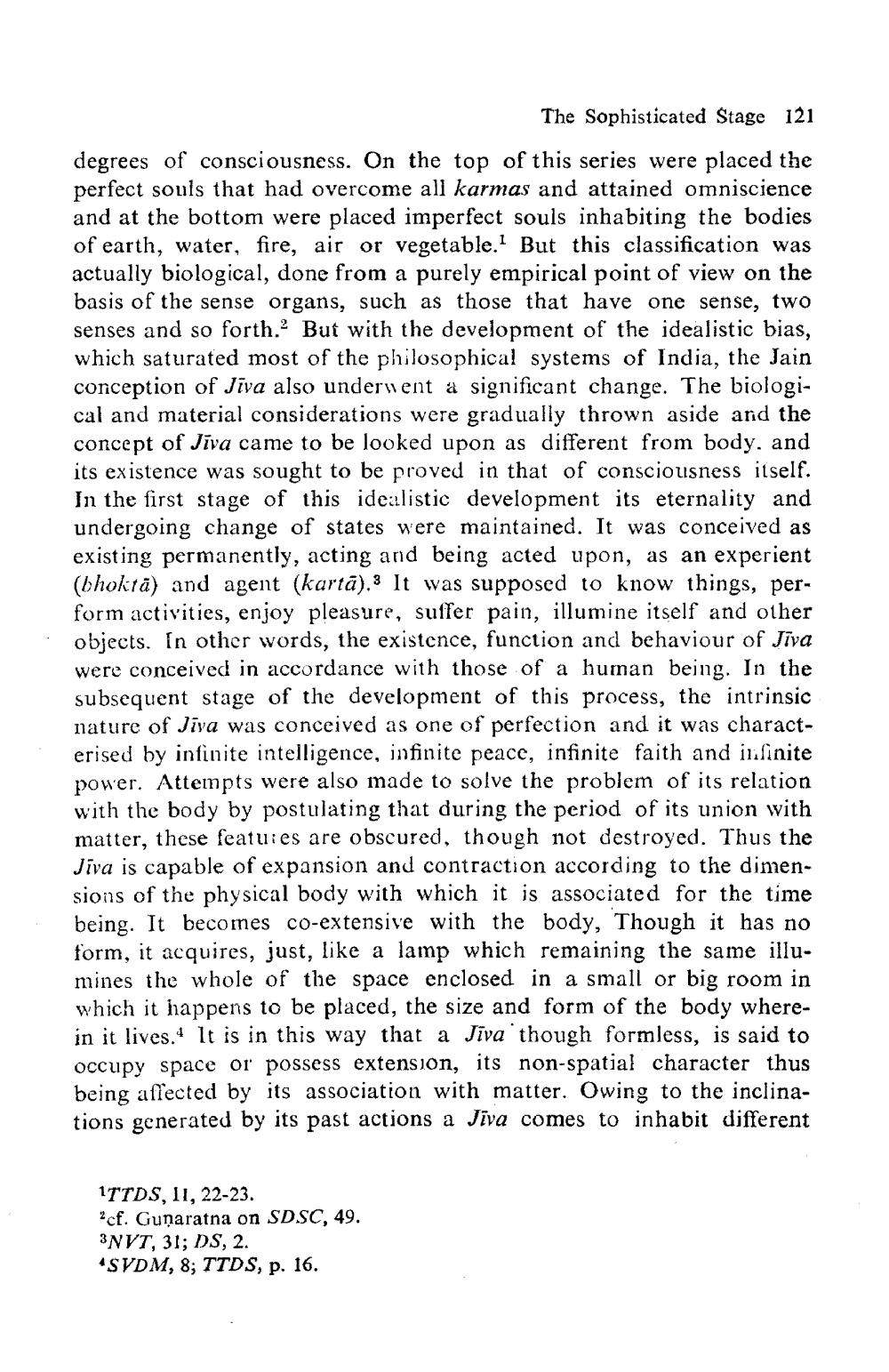________________
The Sophisticated Stage 121
degrees of consciousness. On the top of this series were placed the perfect souls that had overcome all karmas and attained omniscience and at the bottom were placed imperfect souls inhabiting the bodies of earth, water, fire, air or vegetable. But this classification was actually biological, done from a purely empirical point of view on the basis of the sense organs, such as those that have one sense, two senses and so forth.” But with the development of the idealistic bias, which saturated most of the philosophical systems of India, the Jain conception of Jīva also underwent a significant change. The biological and material considerations were gradually thrown aside and the concept of Jiva came to be looked upon as different from body, and its existence was sought to be proved in that of consciousness itself. In the first stage of this idealistic development its eternality and undergoing change of states were maintained. It was conceived as existing permanently, acting and being acted upon, as an experient (bhoktā) and agent (kartā).3 It was supposed to know things, perform activities, enjoy pleasure, suffer pain, illumine itself and other objects. In other words, the existence, function and behaviour of Jiva were conceived in accordance with those of a human being. In the subsequent stage of the development of this process, the intrinsic nature of Jiva was conceived as one of perfection and it was characterised by infinite intelligence, infinite peace, infinite faith and infinite power. Attempts were also made to solve the problem of its relation with the body by postulating that during the period of its union with matter, these features are obscured, though not destroyed. Thus the Jiva is capable of expansion and contraction according to the dimensions of the physical body with which it is associated for the time being. It becomes co-extensive with the body, Though it has no form, it acquires, just, like a lamp which remaining the same illumines the whole of the space enclosed in a small or big room in which it happens to be placed, the size and form of the body wherein it lives. It is in this way that a Jīva though formless, is said to occupy space or possess extension, its non-spatial character thus being affected by its association with matter. Owing to the inclinations generated by its past actions a Jiva comes to inhabit different
1TTDS, 11, 22-23. ? cf. Gunaratna on SD.SC, 49. 3NVT, 31; DS, 2. *SVDM, 8; TTDS, p. 16.




